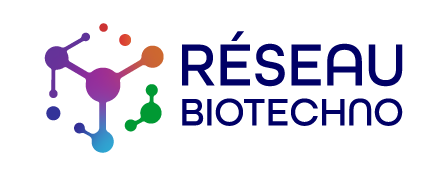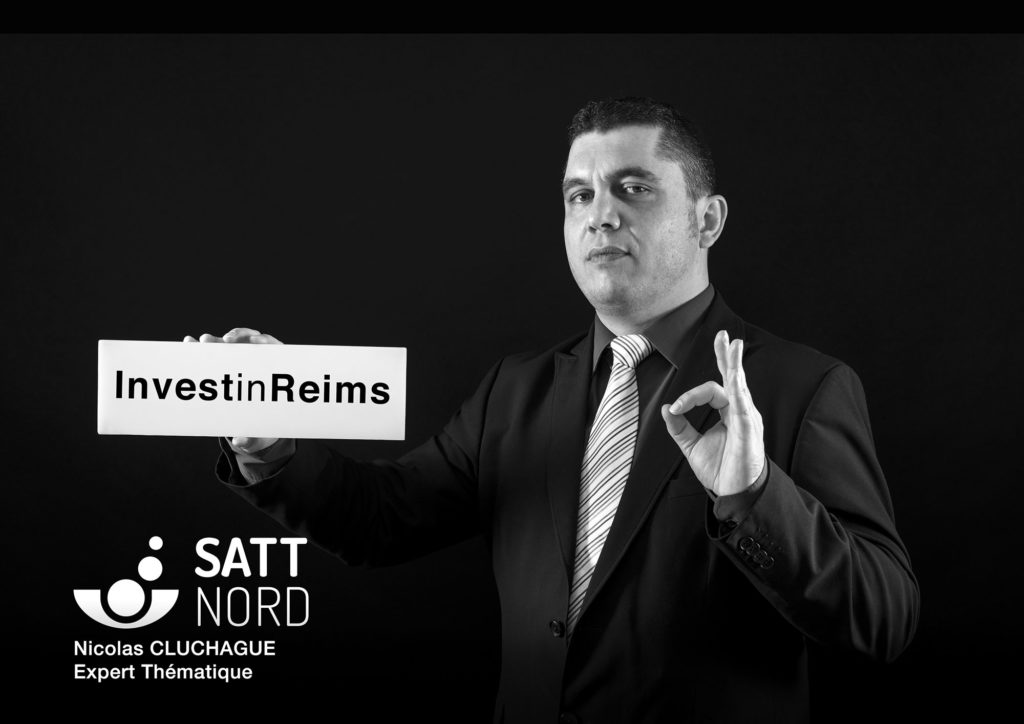[vc_row][vc_column][dt_quote]
Nicolas Cluchague, ancien président du Réseau BIOTechno de 2004 à 2005 et désormais manager de projets en sciences de la vie à la SATT-Nord.
[/dt_quote][vc_empty_space][/vc_column][/vc_row][vc_row][vc_column][vc_row_inner equal_height=”yes” content_placement=”middle”][vc_column_inner width=”1/2″][vc_column_text css=”.vc_custom_1521473612738{padding-top: 5px !important;padding-right: 10px !important;padding-bottom: 5px !important;padding-left: 10px !important;background-color: #dd9933 !important;}”]
Bonjour, comment avez-vous connu le Réseau BIOTechno pendant votre doctorat ?
Dès la première année de thèse, j’ai réalisé que je ne souhaitais pas poursuivre une carrière académique. C’est dans le cadre de la création d’une association de jeunes chercheurs à Rennes à laquelle j’ai participé, que j’ai entendu parler de BIOTechno. J’ai été impliqué dans BIOTechno de 2002 à 2005 et j’ai également été président du Réseau BIOTechno. A cette époque, entre 5 et 7 forum étaient organisés chaque année. L’intérêt était très fort étant donné le peu d’événements similaires qui existaient. C’était un moment privilégié des doctorants pour sortir du laboratoire et s’ouvrir à d’autres choses dont ils n’avaient jamais entendu parler.
[/vc_column_text][/vc_column_inner][vc_column_inner width=”1/2″][vc_separator color=”custom” style=”dashed” border_width=”5″ accent_color=”#7498c0″][/vc_column_inner][/vc_row_inner][/vc_column][/vc_row][vc_row][vc_column][vc_row_inner equal_height=”yes” content_placement=”middle”][vc_column_inner width=”1/2″][vc_single_image image=”17817″ img_size=”full”][/vc_column_inner][vc_column_inner width=”1/2″][vc_column_text css=”.vc_custom_1521473622338{padding-top: 5px !important;padding-right: 10px !important;padding-bottom: 5px !important;padding-left: 10px !important;background-color: #151d71 !important;}”]
Qu’est-ce que vous a apporté BIOTechno dans votre évolution de carrière ?
A mon époque, le secteur privé était un peu “diabolisé”, il n’était pas facile de dire qu’on quittait la recherche académique pour quelque chose d’autre. Avec BIOTechno, j’ai appris à valoriser ma thèse, non pas pour son contenu technique mais plutôt pour la démarche scientifique acquise, la gestion de projet, le respect des deadlines ou encore l’aspect analytique. Le plus important est de valoriser objectivement sa thèse et éviter de la survaloriser, il faut trouver un juste milieu. Pendant mon doctorat, j’étais dans un petit laboratoire de biophysique, et j’ai dû apprendre à trouver des collaborations pour faire avancer le projet, cela m’a permis de gérer un réseau pluridisciplinaire.
[/vc_column_text][vc_column_text css=”.vc_custom_1521483952978{padding-top: 5px !important;padding-right: 10px !important;padding-bottom: 5px !important;padding-left: 10px !important;background-color: #151d71 !important;}”]
Dans votre poste actuel à la SATT, que vous apporte concrètement le fait d’être PhD ?
Tout d’abord, être docteur/PhD est souvent un gage de crédibilité pour mes interlocuteurs, qui sont la plupart des chercheurs. Le doctorat est donc un atout facilitateur pour moi. Par ailleurs, la thèse conduit à évoluer pendant plusieurs années dans un laboratoire, ce qui permet d’en connaitre l’organisation, le fonctionnement, et les enjeux. Il est alors plus facile d’être en phase avec son interlocuteur, puisque l’on comprend ses attentes et ses contraintes
[/vc_column_text][/vc_column_inner][/vc_row_inner][/vc_column][/vc_row][vc_row][vc_column][vc_row_inner equal_height=”yes” content_placement=”middle”][vc_column_inner width=”1/2″][vc_column_text css=”.vc_custom_1521476139944{padding-top: 5px !important;padding-right: 10px !important;padding-bottom: 5px !important;padding-left: 10px !important;background-color: #dd9933 !important;}”]
Comment avez-vous effectué votre transition après votre doctorat vers les métiers de la valorisation ?
Pendant mon doctorat, j’ai bénéficié des formations complémentaires qui étaient proposées par l’école doctorale de Rennes comme le management ou la propriété intellectuelle. Sans être exhaustives, elles ont au moins eu le mérite de me sensibiliser à ces aspects. En tant que chargé de valorisation, il est nécessaire d’être polyvalent. Par ailleurs, dans le cadre notamment de l’organisation des forums BIOTechno, j’ai été amené à travailler avec différents acteurs de l’innovation, ce qui m’a permis de mieux appréhender les enjeux de la valorisation.
[/vc_column_text][/vc_column_inner][vc_column_inner width=”1/2″][vc_separator color=”custom” style=”dashed” border_width=”5″ accent_color=”#7498c0″][/vc_column_inner][/vc_row_inner][/vc_column][/vc_row][vc_row][vc_column][vc_row_inner equal_height=”yes” content_placement=”middle”][vc_column_inner width=”1/2″][/vc_column_inner][vc_column_inner width=”1/2″][vc_column_text css=”.vc_custom_1521476352874{padding-top: 5px !important;padding-right: 10px !important;padding-bottom: 5px !important;padding-left: 10px !important;background-color: #151d71 !important;}”]En quoi consiste le métier de chargé de valorisation ?
A vrai dire, cela dépend de la structure. J’ai débuté comme chargé de valorisation à l’Université de Reims où j’assurais la gestion de la propriété intellectuelle, la détection des innovations, la recherche partenariale, le marketing, le licensing et l’accompagnement à la création d’entreprise. Au-delà de l’aspect technique et scientifique, ces fonctions faisaient appel à des compétences juridiques, financières etc. C’était donc un poste très polyvalent où on touchait à tout. Un des aspects les plus important est d’abord de se faire connaitre auprès des laboratoires, de créer son réseau, à travers des opérations de sensibilisation par exemple. Il faut également faire un travail pour démystifier la valorisation technologique auprès de certains acteurs académiques. Dans les structures plus grandes, le métier est un peu différent en raison de l’organisation, les services peuvent être mutualisés et spécialisés. Depuis 2013, je travaille à la SATT-Nord où évoluent une quarantaine de personnels permanent. Mon poste est manager de projet, et je coordonne une équipe composée de juristes, ingénieurs brevet et business développeurs. La valorisation de la recherche et le transfert de technologie est un processus à long terme, où on investit sur des projets qui nécessitent du temps pour se développer
[/vc_column_text][/vc_column_inner][/vc_row_inner][/vc_column][/vc_row][vc_row][vc_column][vc_empty_space][vc_column_text]
Interview retranscrite par Paul Bardot, community manager du Réseau BIOTechno
[/vc_column_text][/vc_column][/vc_row]



